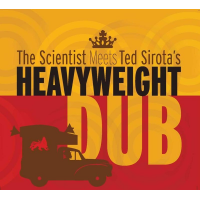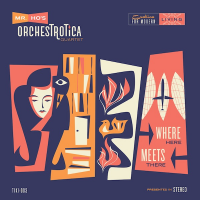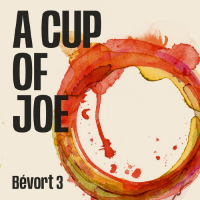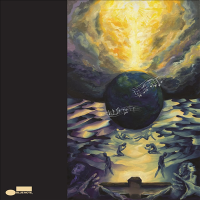Home » Jazz Articles » Bailey's Bundles » Christmas I - A Handel’s Messiah Throw Down, 2013...
Christmas I - A Handel’s Messiah Throw Down, 2013...
There have been several new recordings and notable re- releases of Messiah since 2005, making appropriate a consideration of these more recent recordings. Briefly recalling from the previous article, there exists no definitive musical text for the oratorio. Handel, ever the impresario/artist, conducted the oratorio some 36 times during his life, tinkering with it throughout.
The composer would typically tailor Messiah to its performance season and to the specific strengths (and weaknesses) of the singers performing a given recital. Between its premiere in 1742 and Handel's death in 1759, modern scholarship has identified adaptations to Messiah's score made in 1743, 1745, 1749, 1750, 1752 and 1754.
That said, the score of Messiah is an historic and holy mess befitting only those scholars given to such arcane musical archeology, from whom we modern listenersl gratefully benefit. Additionally, and on the positive side, Handel's tendency to tinker leaves us a wealth of performance options historically linked to period practices.
Presented here are a few of the highlights in the world of Messiah that have emerged or re- emerged since 2005. There are version cautions and several of these have been available for years and for some reason make it into reissue rotation every so often to muddy the pedigree of the sound releases. Ain't it grand!
 John Butt, Dunedin Consort and Players; Susan Hamilton, Annie Gill; Claire Wilkinson; Nicholas Mulroy; Matthew Brook
John Butt, Dunedin Consort and Players; Susan Hamilton, Annie Gill; Claire Wilkinson; Nicholas Mulroy; Matthew Brook Messiah
Linn Records
2013
This is the current Gramophone Magazine best Recording of Messiah, replacing Paul McCreesh and the Gabrieli Consort's 1754 Foundling Hospital version on Archiv (1997). Butt's is the Dublin, 1742 version in approximation, where the director has dug up a few additional tidbits to add some repeats and a beautifully organic original instruments sound.
Stately and determined, this performance boasts a flowing lyricism that progresses on its own momentum. This music is fresh with a lightness that sounds like the fog over a river lifting. There is a bit of highwire to the performance in that it universally proceeds oblivious to every pitfall that can occur in Handel's masterpiece.
The tempo over the entire performance is precisely modulated without being pedantic, the individual pieces integrating well together. Bass Matthew Brooks turns in a well- paced "But He May Abide" that is brilliantly understated. Tenor Nicholas Mulroy is exemplary. His performance on the ever-important "Comfort Ye" is full-throated, setting the stage for what proves to be a very organic and earthy performance.
 Freiburger Barockorchester, Rene Jacobs
Freiburger Barockorchester, Rene Jacobs Messiah
Harmonia Mundi
2011
This 1750 Version, originally conducted by Handel London on behalf of the Foundling Hospital Charity annually, benefitted from the seven years between it and the London premiere in 1743, which caused a bit of a controversy among London's more devout because Handel chose to present a religious subject in a concert hall performed by the local opera singers of the day. Handel was able to tinker with the arrangement and singer assignment of the oratorio. This 1750 version intentionally accentuated vocal virtuosity, which appealed to the contemporary audience more than as a Sunday School lesson.
Conductor Rene Jacobs employs an SSATB format for the singers made up of a soprano, alto, countertenor, tenor, and bass using conventional wisdom tempos. The soloists are all equally excellent, giving bravura performances which are both tasteful and not oversung. Countertenor Lawrence Zazzo is particularly fine on "But Who Can Abide the Day of His Coming" while Patricia Bardon slays the alto showpiece "He Was Despised." This "Hallelujah" Chorus is the most carefully modulated vocal example of all recordings presented here. Jacobs masterfully brings out the bright colors of the chorus with great drama and effect. It is beautiful contrast to the other "Hallelujah" Choruses. It is not the most powerful, but it is the most beautiful. A fine Messiah, indeed!
 Benoit Haller, La Chapelle Rhenane
Benoit Haller, La Chapelle Rhenane Messiah
K617
2013
This new Messiah is different in its ultra stripped down form and the constitution of voices. Benoit Haller's performance does not feature only a single soloist from the soprano, alto, tenor, baritone/bass ranges. Instead, three voices each represent the ranges. Add to this the spare string instrumentation of three first violins, three second violins, two violas, one cello and one bass and what we have is a distillation of forces that show well the skeleton of the piece without lessening the impact of the music.
Haller's La Chapelle Rhenane was formed in 2001 specifically to address the vocal repertoire in a vibrant and historically informed manner. The effect of a lack of a formal chorus further demonstrates the artistic distillate rendered, that is: a Messiah spacious enough to walk around inside. Given that, the performance lacks a viscera vocal power at the expense to this spacious character. This is okay, as the performance is startlingly different from the others discussed here.
Note on tempi: Haller's performance is slower in tempo than the others considered here. This is not an issue until the "Hallelujah" chorus, which is jarringly slow. The effect, however, is fresh and powerful. Even this smaller vocal forces, this is one to inspire, particularly as Haller modulates the tempo, accelerating it as the chorus reaches its coda, which is brilliantly bright.
 Leonard Bernstein, New York Philharmonic; Adele Addison, Russell Oberlin, David Lloyd, William Warefield, Westminster Choir
Leonard Bernstein, New York Philharmonic; Adele Addison, Russell Oberlin, David Lloyd, William Warefield, Westminster Choir Messiah
United Classics
2013
RELEASE ALERT! Oh no, not Bernstein's 1956 performance again!
Oh Lenny! Leonard Bernstein's and The New York Philharmonic's 1956 recording of Messiah may appropriately be considered the "American" Messiah. Where else would a conductor throw the composer's blueprint out the window, arranging the classic to his suiting? Bernstein reduced the story from Jennens' three parts to two pick and choosing what was to say and go. Needless to say, this version of 'Messiah' would never be possible today. It can only exist in a time vacuum as a Bernstein reissue.
With the present conventional wisdom tending toward performance authenticity in early music, and even a conductor of Bernstein's reputation, recording 'Messiah' without attempting a historically- informed style of performance could not expect to be well received. It is a nostalgia thing. Bernstein's tinkering met the conductor's expectations. Bernstein never claimed that his vision was authentic, only that it was his.
All of this said, Leonard Bernstein can be seen as a Franz Liszt of conducting, fearlessly interpreting the canonic material in a way that could be moving and maddening in the same breath.
 William Christie; Les Arts Florissants; Barbara Schlick, Sandrine Piau, Andreas Scholl, Mark Padmore, Nathan Berg
William Christie; Les Arts Florissants; Barbara Schlick, Sandrine Piau, Andreas Scholl, Mark Padmore, Nathan Berg Messiah
Harmonia Mundi
2013
Christie's performance is of the Dublin, 1742 version, but is quite different from the Butt performance above. This Messiah is prim, proper and precise and on its best behavior with a fine set of SSATB soloists and Christie's crack French band. Christie features two high end singers sopranos Sandrine Piau, Barbara Schlick and alto Andreas Scholl, who slay their respective show pieces.
This performance is a re-release of Christie's 1994 Harmonia Mundi account that fell to the street among several other period instrument and practice performances. This "He Was Despised" is a show-stopper and the "Hallelujah" chorus is as prim as it is extroverted.
 Stephen Layton, Britten Sinfonia / Polyphony; Julia Doyle; Lestyn Davies; Allan Clayton; Andrew Foster
Stephen Layton, Britten Sinfonia / Polyphony; Julia Doyle; Lestyn Davies; Allan Clayton; Andrew Foster Messiah
Hyperion
2013
This modified 1790 version is both stately and delicate. The Britten Sinfonia, a modern instrument ensemble under the direction of Stephen Layton, gives a historically informed performance. Also, perhaps the sweetest tenor of all considered here exists in one Allen Clayton, whose "Comfort Ye" and "Every Valley" are downright creamy. The choir Polyphony, formed by Layton in 1986, provides solid and sure choral support to the excellent soloists.
With the period-instrument movement leveling out and benefiting from much improved engineering techniques, it is a positive sign to hear a modern instrument band taking on Handel's warhorse. This performance is durable with much staying power.
 Stephen Cleobury, Brandenburg Consort; Choir of Kings College; Lynne Dawson, Hillary Summers, John Mark Ainsley, Alastair Miles, Crispian Steele Perkins
Stephen Cleobury, Brandenburg Consort; Choir of Kings College; Lynne Dawson, Hillary Summers, John Mark Ainsley, Alastair Miles, Crispian Steele Perkins Messiah
Regis
1994/2013
RELEASE ALERT! Stephen Cleobury's Messiah account with the Choir of King's College, Cambridge was recorded in 1994 and originally released on Argo Records. Since then, the performance has been re- released no less than five times on Brilliant Classics and Decca Records. That said, the performance is of 1752 version and the only authentic version for conventional SATB soloists. This version, recorded live, is not to be confused this the next entry of Cleobury and The Choir of King's College, Cambridge and the Academy of Ancient Music, which was recorded in 2009 and re-released this year.
Recorded in Pieterskerk, Leiden (the "Pilgrim Father's Church," Rotterdam-Delfshaven, Netherlands) in 1993, this Messiah is bright, dry and cool, sounding what light looks like passing through ice. The general tempo is across the work is brisk and well integrated, in keeping this recent historically- informed performance practices. The Hallelujah chorus is bright but distant, deriving its force from the precision of execution as opposed to nearness of sound. The Nativity section is beautifully upbeat and optimistic. The warhorse alto air, "He Was Despised" is given a creamy, urgent reading by mezzo-soprano Alice Coote. The "Hallelujah" chorus is joyous and "My Redeemer Liveth" full of promise. This is as fine a performance as is available, among these other very fine performances.
 Stephen Cleobury, Academy of Ancient Music; Choir of King's College Cambridge; Ailish Tynan; Alice Coote; Allan Clayton; Matthew Rose
Stephen Cleobury, Academy of Ancient Music; Choir of King's College Cambridge; Ailish Tynan; Alice Coote; Allan Clayton; Matthew Rose Messiah
Regis
2009
RELEASE ALERT! EMI's 2009 recording of Messiah with the Choir of King's College, Cambridge, led by Stephen Cleobury, marks three anniversaries: the 250th anniversary of Handel's death, the founding of the University of Cambridge 800 years ago, and the death 80 years ago of Arthur Henry Mann, the famous leader of Choir of King's College, Cambridge, in the first "modern" performance of Messiah. Under his baton, Messiah retained its smaller instrumental and vocal stature, something blown out of the water by Sir Thomas Beecham just about every time he recorded. Mann's attempts to replicate the smaller performing forces of Handel's period predated the the heat of the period performance practice by near three-quarters of a century. So, there is really nothing new under the sun.
Slower-paced than the Brandenburg Consort recording, Cleobury elects for a more thoughtful and carefully considered rendering of the oratorio during this celebration year with the Academy of Ancient Music. Cleobury's approach is humble and self- effacing, with no bells and whistles, letting the music speak for itself. The approach works beautifully—this is not a version one would call spectacular in the brilliance of its soloists or in daring musical choices that prove revelatory—but in all its particulars and as a whole, it sounds just, well...just right. Cleobury's tempos are always within the conventional wisdom, but the deceptively simple but tricky relation of tempos between sections or movements feels absolutely natural and utterly convincing. It is interesting to note Cleobury's vastly different approaches in these two performances.
Tags
PREVIOUS / NEXT
Support All About Jazz
 All About Jazz has been a pillar of jazz since 1995, championing it as an art form and, more importantly, supporting the musicians who make it. Our enduring commitment has made "AAJ" one of the most culturally important websites of its kind, read by hundreds of thousands of fans, musicians and industry figures every month.
All About Jazz has been a pillar of jazz since 1995, championing it as an art form and, more importantly, supporting the musicians who make it. Our enduring commitment has made "AAJ" one of the most culturally important websites of its kind, read by hundreds of thousands of fans, musicians and industry figures every month.




















